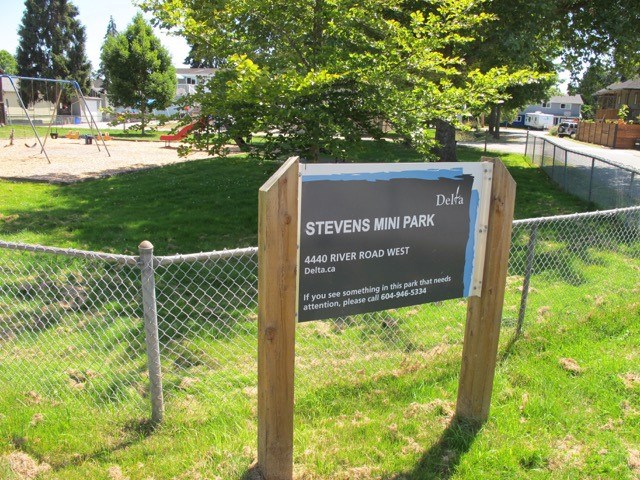On Sunday, Aug. 2, a beautiful summer afternoon, about 40 people gathered at a community park in South Delta to pay tribute to the memory of one of the area's pioneers.
Speakers at the gathering in Stevens Mini-Park (named by Delta in honour of the family's contributions to the community) included BC Communist leader George Gidora, Bruce Stevens (the oldest son of Homer and his wife Grace), retired ILWU activist Dave Pritchett (whose grandfather Harold was the first Canadian president of the longshore union). Librarian/bookstore worker Linda Chobotuck, who was a salmon cannery worker in her youth, performed several fishing industry songs. A letter from Grace Stevens (now 97 and living in Nanaimo) was read out, describing the couple's early life on the coast, as well as Homer's involvement in the union and their years on Lasqueti.
The late Homer Stevens, born in 1923, grew up in Port Guichon, into a fishing family of Greek and Cowichan origins.
Like many working-class people of his generation during the Great Depression of the 1930s, Stevens was drawn to labour activism and socialist politics, as a member of the Communist Party.
By 1948, he was elected to the leadership of the United Fishermen and Allied Workers Union (UFAWU), which played a prominent role for decades as a strong defender of the rights and interests of fishermen and cannery workers along the West Coast.
At one point Stevens and another UFAWU leader were jailed for a year, for refusing to obey a court injunction against a union strike action. He became a powerful voice in the struggle to save the salmon fishery and preserve the natural environment.
Despite his radical politics, Stevens was picked by the federal government for his vast expertise, to be part of the Canadian contingent at the United Nations Law of the Sea conferences which forged international agreements on maritime boundaries and fishing rights. After retiring from the UFAWU, he and his wife Grace went back to fishing during the 1980s and '90s, spending time with their extended family and living close to the land on their Lasqueti Island acreage. Stevens remained active in social justice and environmental issues until his death in 2002.



